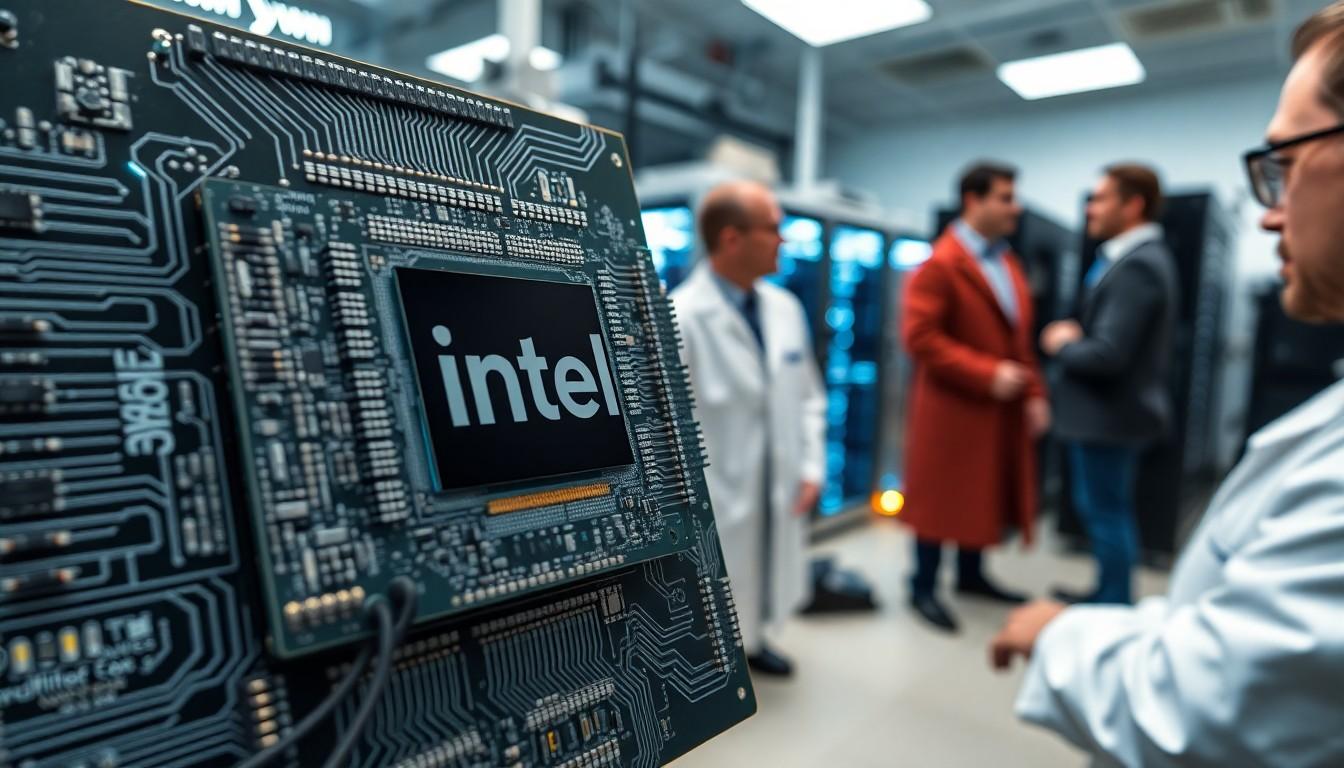Physical Address
304 North Cardinal St.
Dorchester Center, MA 02124

In a world where computers are getting faster but still struggle with complex problems, Intel’s quantum computing is like the superhero we didn’t know we needed. Imagine a realm where calculations that would take traditional computers eons can be solved in mere moments. Sounds like science fiction? Think again! Intel is at the forefront of this technological revolution, bringing quantum power to the masses.
Intel focuses on quantum computing to address complex challenges across various sectors. The company works on developing quantum bits, or qubits, which serve as the foundational units of quantum information. These qubits operate differently from traditional bits, leveraging superposition and entanglement for advanced computational power.
In 2023, Intel unveiled its quantum processor, called Horse Ridge, designed for scalable qubit control. The innovations in this processor enable better management of multiple qubits, increasing computational capabilities. Enhanced qubit coherence times contribute to more accurate results, which is essential for practical applications.
Moreover, partnership with research institutions bolsters Intel’s efforts in quantum technology. Collaborations with universities and organizations support advancements in algorithms, application development, and hardware integration. This synergy aids in translating theoretical concepts into implementable solutions.
The company’s commitment to open-source initiatives facilitates broader accessibility to quantum computing resources. By sharing knowledge and tools, Intel invites developers and researchers to explore new applications in various industries, such as materials science, drug discovery, and optimization problems.
Intel’s strategic investments in quantum software underscore its vision for practical applications. The company aims to create an ecosystem where quantum computing complements classical computing. This hybrid approach enhances problem-solving capabilities in fields like cryptography, finance, and artificial intelligence.
Through research, development, and collaboration, Intel stands at the forefront of quantum computing. Positioning itself as a leader, the company strives to make quantum technology a viable option for a wide range of users. These advancements promise to revolutionize the way complex problems are approached and solved.

Intel’s quantum computing technology relies on innovative components that push the boundaries of traditional computing. Focusing on foundational units known as qubits, Intel enables advanced computations through unique physical properties.
Qubits serve as the essential building blocks of quantum information. Unlike classical bits that represent either 0 or 1, qubits can exist in multiple states simultaneously due to superposition. Entanglement further enhances their functionality, allowing qubits to be interconnected even across distances. This property significantly increases computational power, enabling faster problem-solving capabilities. Intel’s advancements in qubit design prioritize scalability and control, facilitating greater manipulation of quantum states in processors. For instance, the Horse Ridge quantum processor ensures efficient management of multiple qubits, contributing to its operational efficiency.
Quantum gates function similarly to classical logic gates but operate differently by manipulating qubits through precise operations. Each gate performs a specific transformation, allowing for complex quantum algorithms to execute. Quantum circuits consist of a series of these gates arranged to perform calculations. Through careful arrangement, Intel constructs intricate quantum circuits that exploit qubit properties to deliver superior performance. By optimizing these circuits, researchers can significantly enhance the effectiveness of quantum algorithms. Intel’s focus on developing robust quantum gates aligns with its vision to create versatile and powerful quantum computing systems.
Intel continues to push the boundaries of quantum computing through innovative advancements and strategic collaborations, solidifying its position as a market leader.
In late 2023, Intel introduced its latest quantum processor, Horse Ridge 2, which enhances qubit connectivity and control. Designed to support larger quantum systems, Horse Ridge 2 streamlines the manipulation of qubits, resulting in improved computational capabilities. The new processor reduces error rates, an essential factor for developing reliable quantum algorithms. Moreover, engineers at Intel achieved significant milestones in qubit design, enabling the integration of different qubit types into a singular platform. Such breakthroughs set the stage for practical applications across various industries.
Intel actively collaborates with leading research institutions to accelerate quantum advancements. Partnerships with universities and industry experts focus on developing robust quantum algorithms and hardware integration strategies. Joint initiatives aim to facilitate experimentation in real-world scenarios, ensuring that research translates into applicable solutions. These collaborations extend into quantum software, where Intel encourages community contributions to enhance open-source projects. Emphasizing shared knowledge, Intel’s network amplifies its resources, fostering greater accessibility to quantum computing capabilities.
Intel faces various challenges in its quantum computing journey. Significant technical hurdles and fierce market competition shape the current landscape.
Technical hurdles present a major challenge for Intel in quantum computing. Managing qubits remains complex, with error rates impacting stability. Quantum coherence is essential for reliable calculations, yet environmental factors can disrupt this coherence. Scalability issues arise from increasing qubit numbers, complicating the architecture. Additionally, developing effective quantum algorithms requires advanced understanding and innovative techniques. Advancements in cryogenic technology and materials science are crucial to improve qubit performance. Overcoming these technical obstacles will significantly enhance Intel’s capabilities in the quantum space.
Market competition intensifies the pressure on Intel to excel in quantum computing. Key players like IBM and Google lead with substantial investments and breakthroughs. They are rapidly developing qubit technologies and quantum algorithms, driving innovation forward. New startups are emerging, creating unique solutions that challenge established firms. Partnerships with academic institutions and industry leaders further strengthen competitors’ positions. In this dynamic environment, Intel must continuously evolve its strategies to maintain a competitive edge. Staying ahead in the quantum race requires strategic collaborations and groundbreaking research initiatives.
Intel’s quantum computing initiatives show promise for transformative applications across various industries.
Applications like materials science, drug discovery, and cryptography heavily benefit from quantum computing capabilities. Researchers can model complex molecular structures, speeding up drug development significantly. In finance, quantum algorithms can optimize trading strategies, predicting market fluctuations with greater precision. Manufacturing processes may become more efficient through improved simulations, reducing waste and costs. Additionally, industries focusing on artificial intelligence can enhance data processing speeds, enabling faster decision-making.
Intel’s roadmap for innovation emphasizes ongoing advancements in qubit design and scalability. By prioritizing high connectivity among qubits, Intel improves the performance of quantum processors like Horse Ridge 2. Continuous collaboration with universities and research institutions aids in refining quantum algorithms. The development of hybrid quantum-classical systems remains crucial, facilitating practical applications in real-world scenarios. Expectations for future breakthroughs include enhanced error correction methodologies, significantly improving reliability. Additionally, open-source initiatives encourage a broader developer community to contribute to advancements, fostering shared knowledge in quantum computing.
Intel’s strides in quantum computing position it at the forefront of a technological revolution. With innovations like the Horse Ridge processors and ongoing collaborations, the company is making quantum capabilities more accessible than ever. The focus on scalability and error reduction is crucial for practical applications in diverse fields.
As Intel continues to tackle the challenges of qubit management and algorithm development, its commitment to open-source initiatives fosters a collaborative environment. This approach not only accelerates advancements but also invites a broader community to participate in shaping the future of quantum technology. The potential impact of Intel’s work promises to redefine problem-solving across industries, paving the way for a new era of computing.